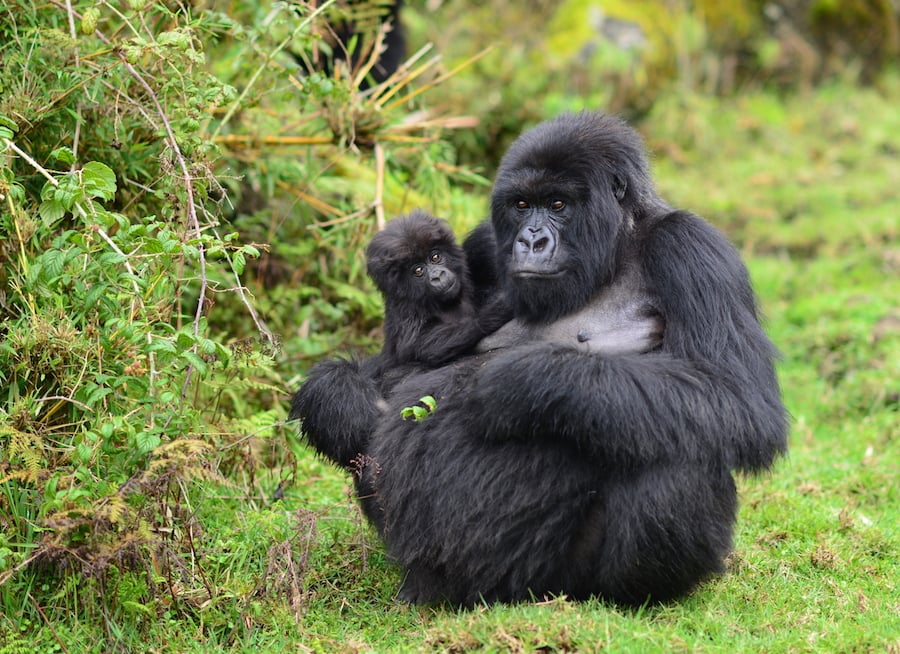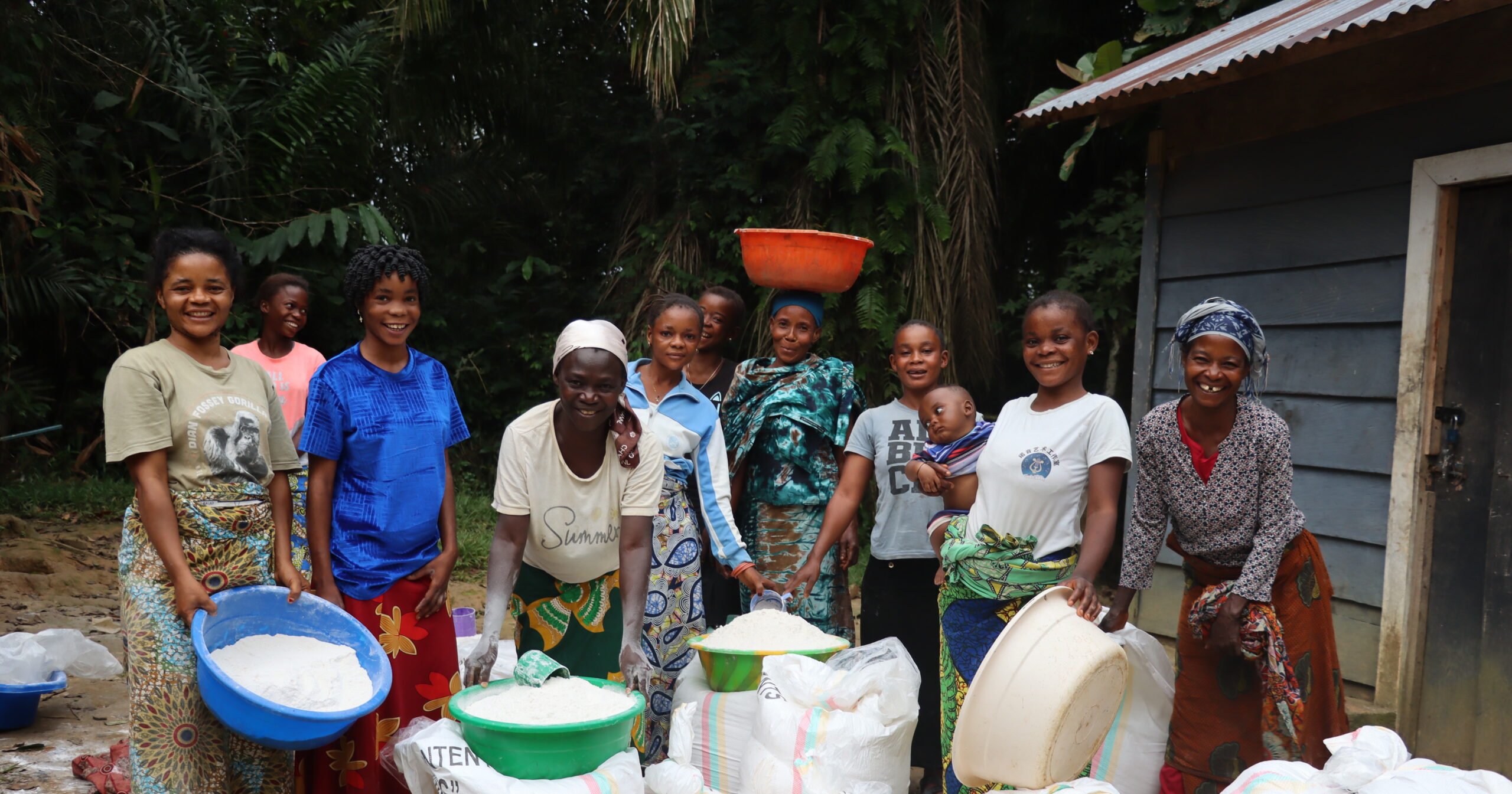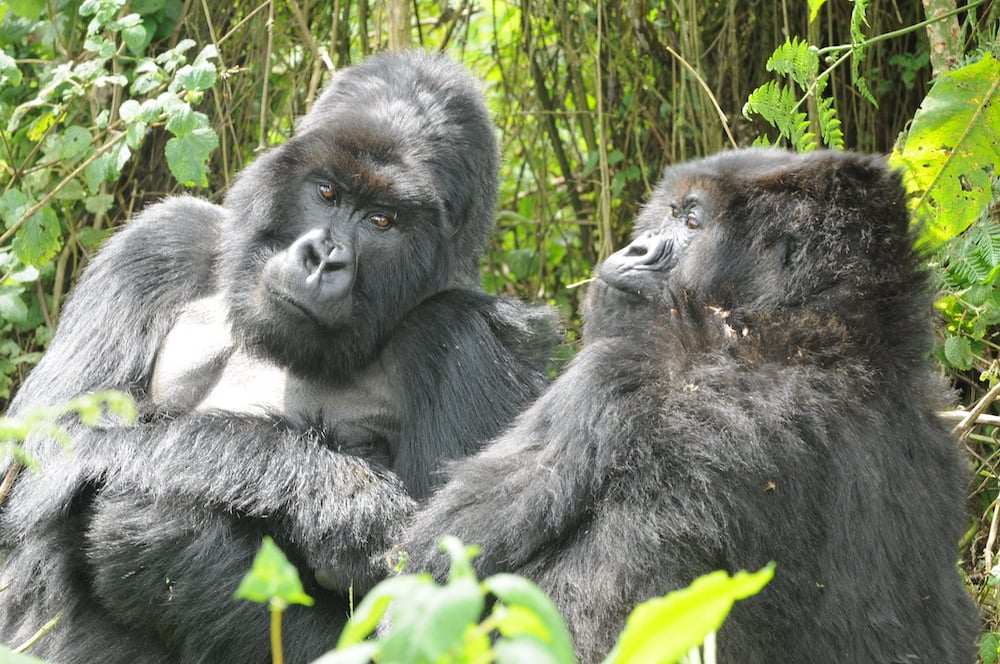March 7, 2013
Wounded Gorilla Infant Succumbs Following Group Changes
 Unfortunately, it is not unusual for silverback gorillas to commit infanticide when females with young infants change groups. The Dian Fossey Gorilla Fund staff are sad to report that Amatwara, the infant of female Bishushwe, died from wounds inflicted the previous week by another gorilla, most likely Ugutsinda, the dominant silverback in the group that the infant and his mother had recently joined. Our field staff saw that the infant was dead when they arrived at the group on Sunday, March 10. We did not immediately recover the body because Bishushwe was still carrying it. The next day, we found the body on the ground very close to the group, indicating that the mother had left him there that morning.
Unfortunately, it is not unusual for silverback gorillas to commit infanticide when females with young infants change groups. The Dian Fossey Gorilla Fund staff are sad to report that Amatwara, the infant of female Bishushwe, died from wounds inflicted the previous week by another gorilla, most likely Ugutsinda, the dominant silverback in the group that the infant and his mother had recently joined. Our field staff saw that the infant was dead when they arrived at the group on Sunday, March 10. We did not immediately recover the body because Bishushwe was still carrying it. The next day, we found the body on the ground very close to the group, indicating that the mother had left him there that morning.
Following silverback Urugamba’s death on Jan. 25, 2013, Bishushwe had faced a dilemma: She could follow the lead of the other members of Urugamba’s group by joining Ugutsinda, and accept the dominant silverback’s protection, with the likelihood that Ugutsinda would kill her infant. Or, she could travel on her own with the infant, a very unusual choice for a gorilla female, which risks her life as well as the infant’s. Initially, Bishushwe struck out on her own, but after a month she joined the others with Ugutsinda. The next morning Amatwara was seen to have suffered serious wounds, including a broken leg which quickly became infected. He also had a hip fracture.
“Scientists suspect that infanticide behavior evolved as an effective strategy for silverbacks to pass on their genes,” says Tara Stoinksi, Ph.D., the Fossey Fund’s vice president and chief scientist. “When an infant dies, the female will soon return to estrus, making her receptive to copulating with the new silverback. If a silverback allows a female to raise an infant that is not his, he will have to wait a few years for her to wean the infant before she will become receptive again. Even if a female has no infant at first, if she gives birth very soon after joining a new group, the silverback will often kill the newborn.”
The Fossey Fund and Gorilla Doctors veterinarians visited the group frequently to check up on the wounded infant and decide whether to intervene with medical treatment. Intervention would have required anaesthetizing Bishushwe as well as the infant. This most likely would have prevented Bishushwe from keeping up with the group, so she would have been on her own in the forest with the infant once again. The serious nature of the infant’s multiple injuries meant that an intervention had little chance of success in any case, and the intervention itself would put more stress on the group. Finally, even if Amatwara could have been healed, there was a strong likelihood that he would soon become a target of more aggression. For those reasons, after a great deal of discussion, a team of Fossey Fund staff, Gorilla Doctors, and Rwandan Development Board (park authority) staff decided it was best not to intervene. They also agreed that there should not be a general rule for interventions in this type of situation, but that each case should be discussed separately, taking into consideration several factors and including all the partner organizations in the final decision.
"The Fossey Fund is in a unique position in that we get to know the life histories and special traits of individual gorillas so well through our daily monitoring and data collection," said Felix Ndagijimana, director of the Fossey Fund's Karisoke research center that studies and protects mountain gorillas in Rwanda. "It is hard to watch them suffer. However, since we are dealing with a wild population, we have an obligation to allow nature to run its course, even if that means, as in the case of Amatwara, that we do not intervene to save a young gorilla from the natural phenomenon of infanticide."
The Gorilla Doctors will conduct a necropsy on the infant's body to provide more details about what had happened.






